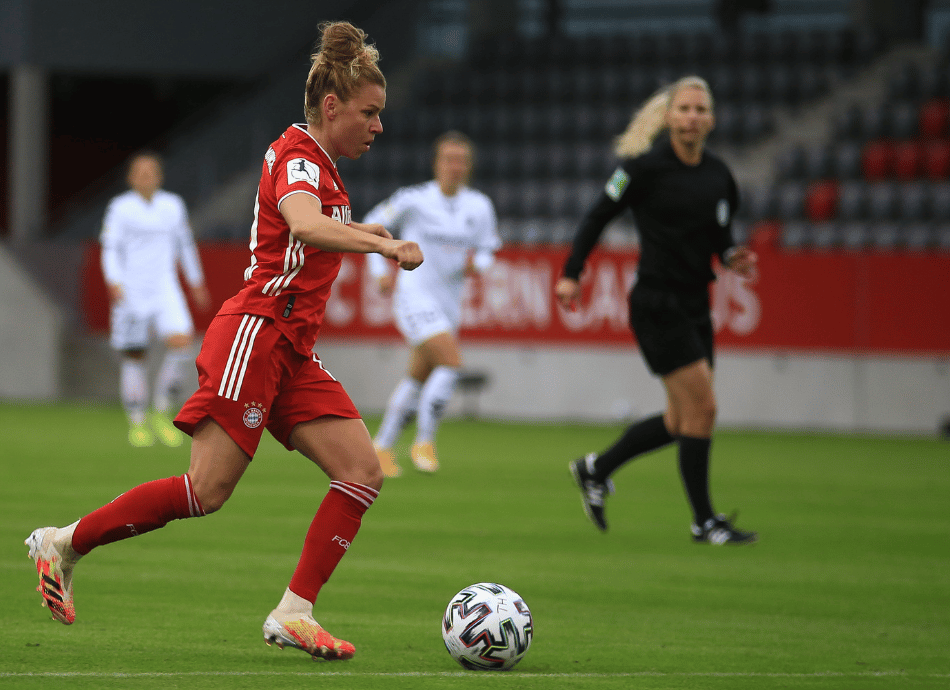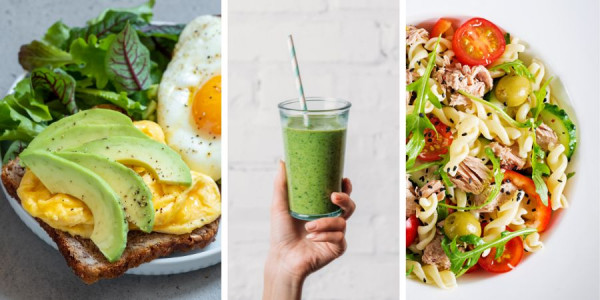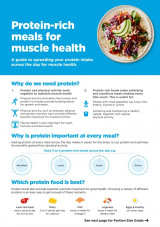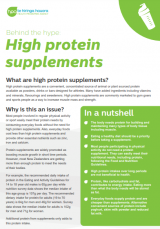You can now add Healthify as a preferred source on Google. Click here to see us when you search Google.
Eating for exercise and sport
Key points about eating for exercise and sport
- Whether you're a competing athlete, a weekend rugby player or a daily gym goer, good nutrition can enhance your training, performance and recovery.
- A well planned diet should meet your nutrient needs and provide enough protein to promote muscle growth and repair.
- Eating well also helps to reduce your risk of injury and illness.

Food provides the human body with the nutrients necessary to grow, develop and function effectively. While there are general guidelines for a healthy diet, nutrition requirements vary for each individual depending on age, gender, metabolic rate, genetics, lifestyle and physical activity levels.
For athletes and people taking part in regular activity and sport, having the right balance of food groups (to give the right mix of vitamins, fibre, carbohydrate, fat and protein) is especially important as nutrition affects performance in sport and exercise.
Nutrition affects your:
- ability to train and compete as well as possible
- ability to recover and adapt
- body composition
- energy levels
- long-term health.
It's important for foods eaten to be tailored to the type and amount of training you're doing. Requirements will differ at different phases in the season, between sports and even on different days of the week.

Image credit: Depositphotos
If you do regular vigorous intensity exercise or you're a professional athlete, a basic training diet should do the following:
- Provide enough energy and nutrients to meet the demands of training and exercise.
- Include a wide variety of whole foods, eg, vegetables and fruit, lean meat (or plant-based protein) and low fat dairy products.
- Include grain foods and more of these foods on days where exercise or training is done for longer or at a higher intensity.
- Provide adequate protein, at every meal across the day – protein needs will depend on training goals and level of activity but recommendations for most people regularly exercising are about 1.4 to 2.0 grams of protein per kg of body weight. Higher intakes (up to 2.2 grams of protein per kg of body weight) may be beneficial during periods of intense training or muscle-building phases.
- Provide adequate fluids to ensure maximum hydration before, during and after exercise.
- Provide suitable nutrition before exercising (to fuel up), and after exercising (to replenish energy stores and help with recovery).
- Promote short and long-term health.
Most people don't need protein supplements (eg, powders and bars) and can meet their protein needs through eating whole foods that also contain essential vitamins and minerals, eg, calcium, iron and zinc.

Image credit: Canva and Depositphotos
Under-fuelling
Not getting enough energy (kilojoules) from food and drink to meet the needs of sport or exercise can negatively impact on your performance and health. If you don’t get enough energy your body adapts to lower energy levels which can impact on bone health, reproduction and immunity. It can also increase your risk of multiple health problems.
Anyone wanting to improve their health and performance can benefit from nutrition advice – from recreational exercisers to elite athletes.
Examples include people with:
- heavy training loads
- specific dietary requirements, eg, gluten-free or vegetarian
- medical issues, eg, diabetes, coeliac disease, bariatric surgery
- nutritional deficiencies, eg, low iron
- food allergies or intolerances
- an injury
- weight requirements for sport.
You may also benefit from sports nutrition advice if you're:
- young and/or growing
- thinking about taking special sports foods or supplements
- travelling for competition.
If you’re an athlete or someone who participates in regular intense exercise it's important to consume the right foods and the right volumes of food to perform at your best. A registered dietitian or nutritionist can help you with personalised advice tailored to your exercise needs.
- Accredited sports dietitians have done additional training and are accredited with Sports Dietitians Australia. You can find a sports dietitian by visiting the find a dietitian(external link) section of the Dietitians NZ website. Type the word 'sport' into the area of specialty field and all relevant dietitians will be shown.
- You can find a registered sports nutritionist through the global Registry for Registered Sports Nutritionists(external link).
Brochures
Fact sheets(external link) Sports Dietitians Australia
A guide to protein rich meals(external link) Sports Dietitians Australia
Behind the hype – high protein supplements(external link) HPA, NZ
Carbohydrate foods in healthy meals(external link) Sports Dietitians Australia
References
- Sporting performance and food(external link) Better Health Channel, Australia, 2024
- Low energy availability(external link) High Performance Sport New Zealand
- Jäger R, Kerksick CM, Campbell BI, et al. International Society of Sports Nutrition position stand – protein and exercise(external link) J Int Soc Sports Nutr. 2017;14:20
- Nutrition and athletic performance(external link) Med Sci Sports Exerc 2016;48(3):543-568
- Behind the hype – high protein supplements(external link) HPA, NZ, 2022
Brochures

Protein rich meals for muscle health
Sports Dietitians Australia

Behind the hype – high protein supplements
HPA, NZ, 2022
Credits: Healthify editorial team. Healthify is brought to you by Health Navigator Charitable Trust.
Reviewed by: Lily Henderson, Registered Dietitian, Auckland; Conrad Goodhew, Accredited Sports Dietitian, Christchurch
Last reviewed:





